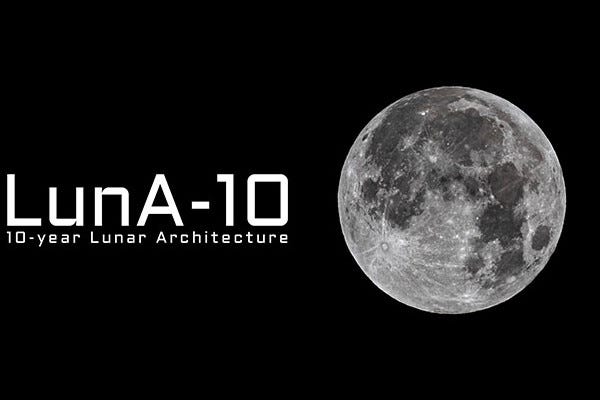Collaborating Toward Integrated Commercial Lunar Infrastructure
Fourteen Companies Selected to Contribute to DARPA LunA-10 Capability Study
The next decade may give rise to a thriving lunar economy. Getting there requires looking beyond the current technical paradigm of isolated, self-sufficient systems that must organically support all necessary resources – such as power and communications– and toward a future framework that emphasizes integrated models of commercial activity.
“LunA-10 has the potential to upend how the civil space community thinks about spurring widespread commercial activity on and around the Moon within the next 10 years.”
Dr. Michael “Orbit” Nayak, DARPA
To this end, DARPA has selected 14 companies for the 10-Year Lunar Architecture (LunA-10) Capability Study, which aims to catalyze the setup of a future civil lunar framework for peaceful U.S. and international use. LunA-10 seeks to study the rapid development of technology concepts for a series of shareable, scalable systems that can operate jointly, creating monetizable services for future lunar users.
“LunA-10 has the potential to upend how the civil space community thinks about spurring widespread commercial activity on and around the Moon within the next 10 years,” said Dr. Michael “Orbit” Nayak, program manager in DARPA’s Strategic Technology Office. “LunA-10 performers include companies both big and small, domestic and international, each of which brought a clear vision and technically rigorous plan for advancing quickly towards our goal: a self-sustaining, monetizable, commercially owned-and-operated lunar infrastructure. We’re excited to get started and to share results with the lunar community at large.”
DARPA has a 65-year legacy of playing a crucial role in enabling the space technology research and development (R&D) ecosystem: de-risking technologies pivotal to civil space. DARPA civil space projects include the rocket technology in the Saturn V that took humans to the Moon for the first time; the Television and Infrared Observations Satellites (TIROS) program, which became the prototype for the current global systems used for weather reporting, forecasting, and research; and the recent DARPA-NASA partnership to enable faster space travel to the Moon and beyond with a nuclear thermal rocket engine, among others. The LunA-10 study aims to continue that tradition of technology initiatives that enable U.S. space leadership.
LunA-10 program performers will work together over the course of the seven-month study in a highly collaborative environment, where they will design new integrated system-level solutions that span multiple lunar services. These include lunar power; mining and commercial in-situ resource utilization; communications, navigation, and timing; transit, mobility, and logistics; and construction and robotics.
DARPA has selected the following companies for LunA-10:
Blue Origin
CisLunar Industries
Crescent Space Services LLC
Fibertek, Inc.
Firefly Aerospace
GITAI
Helios
Honeybee Robotics
ICON
Nokia of America
Northrop Grumman
Redwire Corporation
Sierra Space
SpaceX
Performers will openly brief their work to the lunar community at the Lunar Surface Innovation Consortium (LSIC) Spring Meeting in April 2024, and provide a final report in June 2024.
LunA-10 will not fund technology construction, transportation to the lunar surface, or integration with lunar delivery vehicles, and the envisioned lunar architecture is not intended to support human exploration or scientific experimentation that does not have a commercial value.





